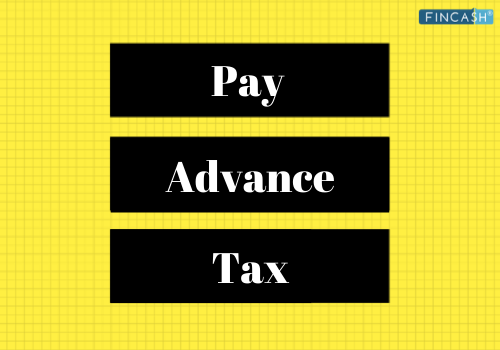
Table of Contents
Hindu Undivided Family (HUF)- Know How to Save Tax Via HUF Act
The Hindu Undivided Family Act is a unique type of business identity found only in India. If you are a Hindu, you can save Taxes through HUF act. But, there a few rules to it, which you will know in this article along with some of the advantages & disadvantages of the Hindu Undivided Family act.

What is the Hindu Undivided Family?
Hindu Undivided Family aka HUF is created by Hindu families in India. Buddhist, Jain, Sikhs can also form a Hindu Undivided Family. In this act, people from Hindu ethnicity can come together and save a good amount of tax by creating the entity. The act has its own PAN, and it files a Tax Return independently of its members.
How to Form a HUF?
One of the most important reasons for forming HUF is to get tax benefits. However, to do so, you need to be aware of these following terms & conditions:
- HUF should only be formed by a family
- As said earlier, Buddhist, Sikhs and Jains can form a HUF
- It is created automatically for the newly added member in the family at the time of their marriage
- In general, this act consists of a common ancestor and all of his lineal descendants including their wives and unmarried daughters
- HUF usually has assets which comes as a gift, will or ancestral property
- Once the entity is created it must be formally registered. It should have a legal Deed. The deed should have details of members and business of the HUF. A Bank account should be created in the name of Hindu Undivided Family. Following which, a PAN will be generated.
Advantages & Disadvantages of Hindu Undivided Family Act
There are many advantages and disadvantages to forming a HUF.
Advantages of HUF
The members are also liable to pay taxes just like other individuals. If the turnover of the business of a member exceeds Rs. 25 lakh or Rs.1 crore then an individual needs to perform tax audit under the guidance of CA as mentioned in the section 44AB of the income tax act.
The head of the HUF has all rights to sign the pertinent documents on behalf of other members.
You can form different taxable units of HUF. Any asset or savings made or insurance premium disbursed by the HUF will be subtracted from the net Income for the tax purpose.
One of the major reason most family forms HUF is because they can create two PAN cards and file taxes separately.
A woman can be a co-partner in the HUF as her husband is a Karta. So, the additional income earned by the woman cannot be added to this.
The official stature remains the same if the Karta or the last member of the family is passed. Therefore, the ancestral and the acquired assets of the HUF will stay in the hands of the widow and need not be partitioned.
An adopted child can also become a member of HUF family.
Women in the family can gift a property in her name which is owned by her or her family.
Members of Hindu Undivided Family can easily avail loans.
This act is recognised in pan India expect Kerala.
Talk to our investment specialist
Disadvantages of HUF
One of the greatest disadvantages of the HUF is that all members have equal rights on the property. The common property cannot be sold without the consent of all the members. In addition, by birth or by marriage a member gets equal rights.
Closing a HUF is a tougher task as compared to opening a HUF. A partition of a family with a small group may lead to the partition of the HUF. Once the HUF is closed, then the asset needs to be distributed among all the members of HUF which can become a huge task.
HUF is viewed as a separate tax entity by the income tax department. Nowadays, joint families are intensely losing their importance. Various cases have come out that HUF members are having a dispute over the property. In addition, divorce cases have augmented as a result, HUF is losing its amenity of a tax-saving tool.
How to Save Tax Via HUF?
The foremost reason for building a HUF is to get an additional HUF PAN Card and gain tax benefits. Once the HUF is formed, the members don’t have to pay tax individually.
The HUF can use new PAN to file the ITR. If the HUF family exceeds Rs. 25 lakh or Rs. 1 crore then the family will be liable to pay tax at 10 per cent, 20 per cent and 30 per cent of the income tax slab.
Let’s understand better the concept of HUF:
For instance, a family consists of five members, i.e, husband, wife and 3 children. The annual income of the husband is Rs. 20 lakh and the annual income of the wife is Rs. 15 lakh. Additionally, they also earn Rs. 6 lakh from the ancestral Land.
Now, keeping the annual individual income separately. The income coming from the ancestral property would be taxed on a husband or wife or both of them. Check the following points to know how it works:
If the land is taxed on the husband then he will be liable to pay 30 per cent of tax as per the income tax slab. This mean- he will pay Rs. 1.8 lakh of Rs. 6 lakh as an income tax. Similarly, if the land is taxed on the wife, she will too fall in the same category, which mean she will pay 30 per cent of tax. She will also end up paying Rs. 1.8 lakh of 6 lakhs.
If it is taxed on both husband and wife, then each of them has to pay 30 per cent of Rs. 6 lakh. Both of them will collectively pay 90,000 + 90,000 = 1,80,000
Furthermore, under the Hindu Undivided Family act, you can enjoy additional tax benefits on the rent of the land. For a HUF member, you can get tax benefit up to Rs. 60,000 to Rs. 70,000. If you are paying 30 per cent of the tax then you can save tax around Rs. 1,80,000 - Rs. 60,000 = Rs. 1,20,000. You will have to pay Rs. 1,20,000 as a taxable amount for the land.
Conclusion
If you want to form a HUF you should make sure to keep HUF balanced. There are advantages and disadvantages of a HUF, you need to make a decision wisely. Any quarrel or dispute within the family can turn into a big loss.
All efforts have been made to ensure the information provided here is accurate. However, no guarantees are made regarding correctness of data. Please verify with scheme information document before making any investment.











